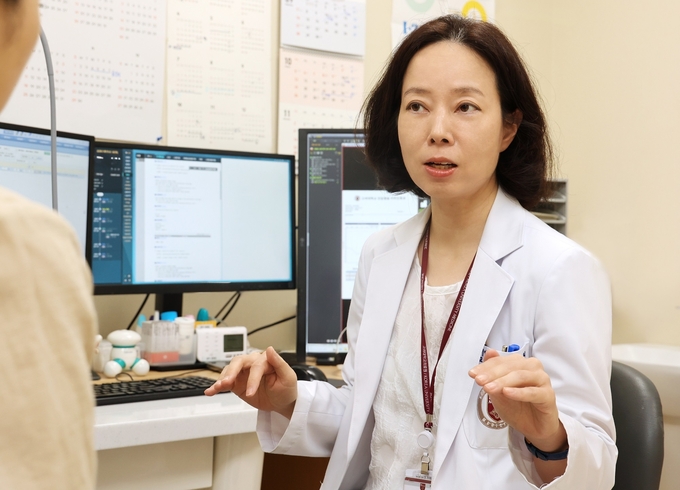
현대인에게 죽음과 장례가 갖는 의미는 무엇일까?
과거 유교식 전통 상례 문화에서 급속하게 도시화·문명화 되어버린 현대사회에서의 잃어버린 죽음의 문화! 무엇을 복원하고 되찾아야 할까?
필자의 어머니는 올해 (2024년 5월, 만86세) 갑작스럽게 사망하셨다. 평소 아주 건강한 삶을 사시다가 갑작스런 뇌경색으로 쓰러지신 후, 신체의 편마비, 언어 장애, 섬망 증상을 보이시다가 요양원에서 삶을 마감하셨다.
실로 5개월 간의 짧은 시간이었지만 도저히 받아들일 수 없는 시간이었다. 어머니는 아주 오래 전부터 ‘연명치료 거부 신청·등록’을 하셨고 ‘장기 기증’과 ‘시신 기증’까지 서약을 하신 분이셨다. 아들이 장례식장에 근무하고 있음에도 불구하고 평소 유언에 따라 장례를 치르지 않았고 조문도 받지 않았다.
과거의 전통 상례에서는 병원에 입원해 있으셔도 돌아가실 쯤에는 집으로 모셔서 가족들이 모여 곁에서 임종(臨終)을 맞이했고 그것을 지키지 못하면 큰 불효로 생각했었다. 하물며 부모님께서 객사(客死)를 하신다는 것은 상상할 수도 없었다.
하지만 우리 사회의 거주 문화에 변화가 오면서, 급격히 도시화가 되어 초밀접화된 주거 환경으로 변화되면서 마을이 사라지고 마당 있는 집이 사라지면서 아파트와 같은 도시화된 현대사회는 더이상 집에서 장례를 치를 수 없게 되었다.
또한 바쁜 일상 속에서 각자의 생활을 꾸려나가기 바쁜 자녀들은 더 이상 나이 들고 몸이 불편한 부모님들을 모시기 어려워졌고 이러한 현상은 자연스럽게 ‘병원(요양원 · 요양병원) 임종의 시대’를 맞게 되었다.
‘화장 문화’·‘병원 임종’ 시대
통계를 보면 1983년 자택임종 비율이 84.8%, 병원임종비율은 8%였으나 2017년 이비율은 거의 역전돼 병원임종비율이 76.2%% 자택임종 비율은 14.4%였다.

대한민국 사람들은 병원에서 태어나서 병원에서 죽는 시대가 되었다.
병원 임종 시대가 도래하면서 △죽음의 의료화 (병사 판정 - 사망진단서 기재 - 장례 용이),
△연명 치료 (가족과 떨어진 상태에서 비참해진 죽음의 질), △죽음의 의미 상실(본인 의사 미반영, 비즈니스화된 장례문화)이 현실이 되었다.

고인을 추모하고 서로 위로하는 일상 속 하나의 의례이자 문화인 ‘장례’. 장례는 단순한 행사가 아닌 우리의 문화고 우리의 정신을 깨우쳐 주는 하나의 의례이며, ‘우리의 삶을 깨우쳐주는 문화’가 되었으면 하는 바람이다.
OECD 국가중 자살률 1위, 고독사·병원 임종 증가 시대, AI시대와 MZ세대의 장례문화는 언제, 어떻게 변화될 것인가?
건강, 인간관계 회복, 나눔, 워라밸, 생명의 존엄, 가족 사랑…….
아무리 강조해도 지나치지 않는 단어들을 떠올리며, 우리 고유의 추석 명절에 건강한 삶, 존중하는 삶, 나누는 삶을 누리며 행복하시기를 기원드린다.
필자 고대원 프로필
현 안양장례식장 이사
현 안양시새마을회 이사
전 안양시새마을회 사무국장
전 민주평통안양시협의회 자문위원, 사무국장
아래는 위 기사를 ‘Google 번역’으로 번역한 영문 기사의 ‘전문’이다. ‘Google 번역’은 이해도를 높이기 위해 노력하고 있다. 영문 번역에 오류가 있을 수 있음을 전제로 한다. <*The following is [the full text] of the English article translated by ‘Google Translate’ and amended. ‘Google Translate’ is working hard to improve understanding. It is assumed that there may be errors in the English translation.>
[Contribution] What do death and funeral mean to modern people?
Director of Anyang Funeral Home, Daewon Ko
What do death and funeral mean to modern people?
From the Confucian traditional funeral culture of the past to the rapidly urbanized and civilized modern society, the lost culture of death! What should we restore and recover?
My mother passed away suddenly this year (May 2024, 86 years old). She had been living a very healthy life, but after collapsing from a sudden cerebral infarction, she suffered from paralysis of the body, speech impediment, and delirium before ending her life in a nursing home.
It was a short period of 5 months, but it was a time that was impossible to accept. My mother had applied for and registered to refuse life-sustaining treatment a long time ago and had pledged to donate her organs and body. Despite her son working at the funeral home, he did not hold a funeral according to his will and did not receive condolences.
In the traditional funeral rites of the past, even if the person was hospitalized, they would be brought home when they passed away and the family would gather to be by their side to say goodbye. Failure to do so was considered a great act of unfilial piety. It was even more unimaginable that their parents would die in the wilderness.
However, as the residential culture of our society changed, rapidly urbanizing and changing into a hyper-dense residential environment, villages disappeared and houses with yards disappeared, making it impossible to hold funerals at home in modern society with apartments.
In addition, children who are busy with their own lives in their busy daily lives have difficulty caring for their parents who are old and in poor health, and this phenomenon has naturally led to the ‘era of death in hospitals (nursing homes and nursing hospitals)’.
The ‘Cremation Culture’ and ‘Hospital Death’ Era
According to statistics, in 1983, the rate of death at home was 84.8% and the rate of death at hospital was 8%, but in 2017, these rates were almost reversed, with the rate of death at hospital being 76.2% and the rate of death at home being 14.4%.
Koreans have entered an era where they are born in hospitals and die in hospitals.
With the advent of the era of hospital death, △medicalization of death (death judgment - death certificate - easy funeral),
△life-prolonging treatment (the quality of death becomes miserable when separated from family),
△loss of meaning in death (failure to reflect the person’s wishes, funeral culture commercialized) became a reality.
A ‘funeral’ is a ritual and culture that is part of everyday life to remember the deceased and comfort each other. A funeral is not a simple event, but our culture and a ritual that awakens our spirit, and I hope it becomes a ‘culture that awakens our lives.’
The highest suicide rate among OECD countries, an era of increasing deaths from loneliness and hospitalizations, when and how will the funeral culture of the AI era and the MZ generation change?
Health, restoration of human relationships, sharing, work-life balance, dignity of life, love of family… … .
I hope you will be happy and enjoy a healthy life, a respectful life, and a sharing life during our unique Chuseok holiday, recalling words that cannot be overemphasized. (2024. 9. 17)
Author Daewon Ko Profile
Current Director of Anyang Funeral Home
Current Director of Anyang City Saemaul Movement
Former Secretary General of Anyang City Saemaul Movement
Former Advisory Committee Member and Secretary General of the Anyang City Council for Democratic Peace and Unification
원본 기사 보기:경기브레이크뉴스&주간현대신문

![[만화경] 품위있는 죽음과 장기 기증](https://newsimg.sedaily.com/2025/10/21/2GZ9JM2R4Q_1.jpg)




